Brazilian consumers were shaken up in recent weeks by the steep price of ethanol at pumps throughout the country. People wonder why this happened and if it will happen again in the future. The most radical critics even said we could be facing a potential fuel shortage and raised doubts about the very future of ethanol. All of this calls for a careful analysis of the issues.
Search Result
Results for ""
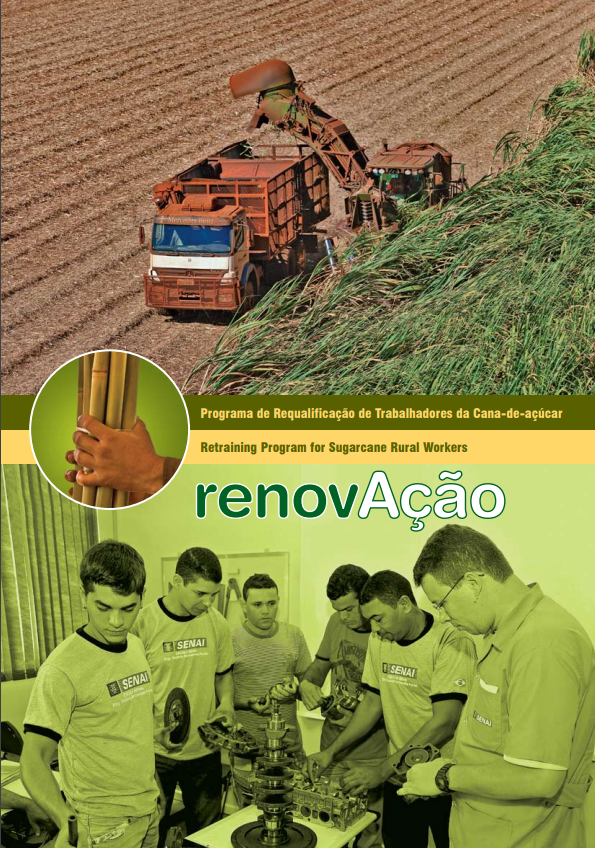
Renovação – Requalification Program for Sugarcane Rural Workers
O setor sucroenergético realiza um dos maiores programas do mundo em treinamento e qualificação de cortadores de cana-de-açúcar, seus familiares e membros das comunidades envolvidas, para capacitar mão-de-obra deslocada da queima manual no Estado de São Paulo.
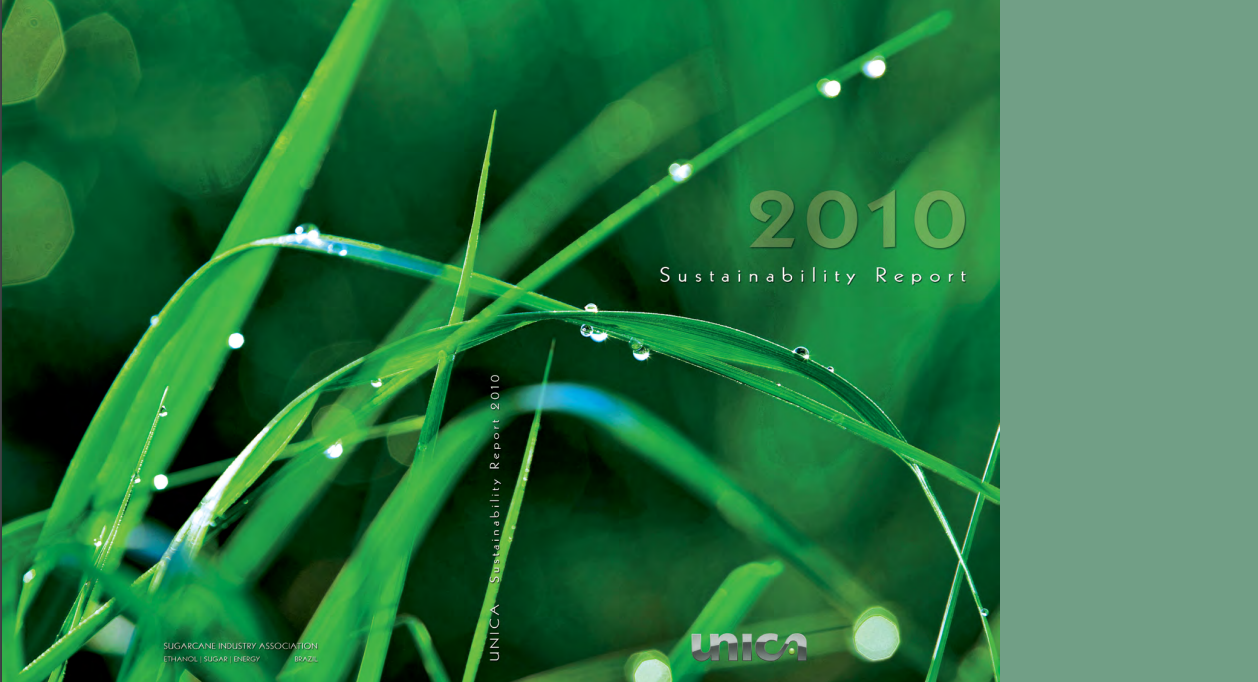
2010 Sustainability Report
This is the Brazilian Sugarcane Industry Association’s (UNICA) second sustainability report, prepared in accordance with the G3 Guidelines of the Global Reporting Initiative (GRI). As such it constitutes a landmark in the development of the Brazilian sugar-energy sector.
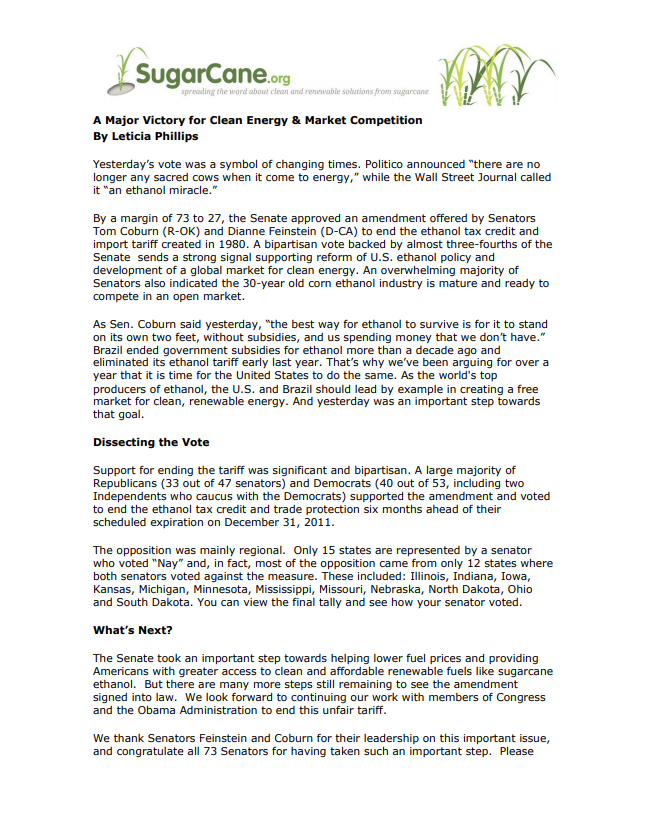
A Major Victory for Clean Energy & Market Competition
Yesterday’s vote was a symbol of changing times. Politico announced “there are no longer any sacred cows when it come to energy,” while the Wall Street Journal called it “an ethanol miracle.”
Ethanol Summit 2011 – Day 1
Welcome to our first blogpost directly from the 2011 edition of the Ethanol Summit, one of the world’s top events focused on renewable energies, which takes place in São Paulo, Brazil today and tomorrow.
Today was an exciting and enriching debate surrounding solutions for a low-carbon economy.
Ethanol Summit 2011 – Day 1
Welcome to our first blogpost directly from the 2011 edition of the Ethanol Summit, one of the world’s top events focused on renewable energies, which takes place in São Paulo, Brazil today and tomorrow.
Today was an exciting and enriching debate surrounding solutions for a low-carbon economy.
Welcome
By 2050, the world’s population will add another 2.5 billion people who will need to eat and power their lives. Global energy needs will likely double, and carbon dioxide emissions could increase by 80 percent. These alarming figures help explain why global leaders are searching for clean, renewable options to provide energy and reduce petroleum use. Sugarcane can help.
Welcome
By 2050, the world’s population will add another 2.5 billion people who will need to eat and power their lives. Global energy needs will likely double, and carbon dioxide emissions could increase by 80 percent. These alarming figures help explain why global leaders are searching for clean, renewable options to provide energy and reduce petroleum use. Sugarcane can help.
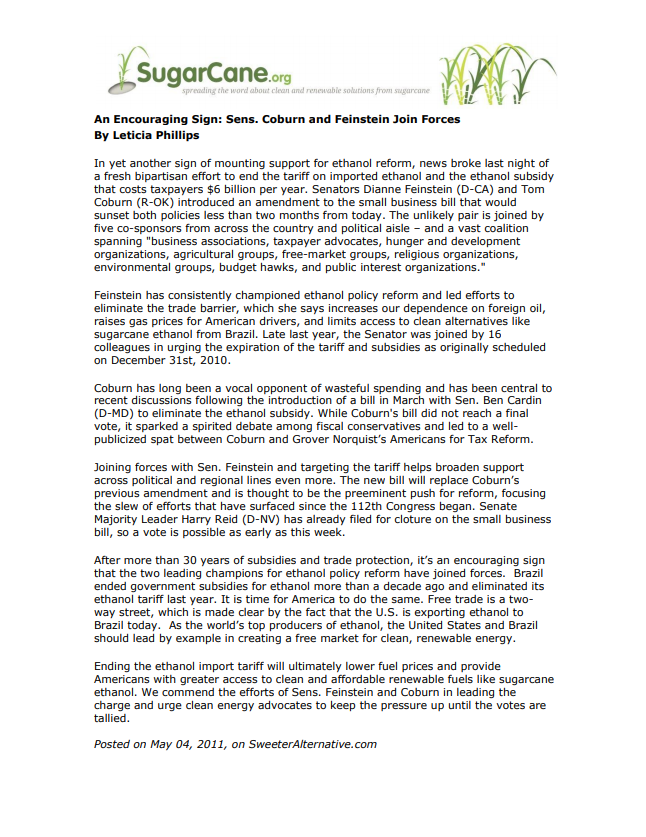
An Encouraging Sign: Sens. Coburn and Feinstein Join Forces
In yet another sign of mounting support for ethanol reform, news broke last night of a fresh bipartisan effort to end the tariff on imported ethanol and the ethanol subsidy that costs taxpayers $6 billion per year. Senators Dianne Feinstein (D-CA) and Tom Coburn (R-OK) introduced an amendment to the small business bill that would sunset both policies less than two months from today.
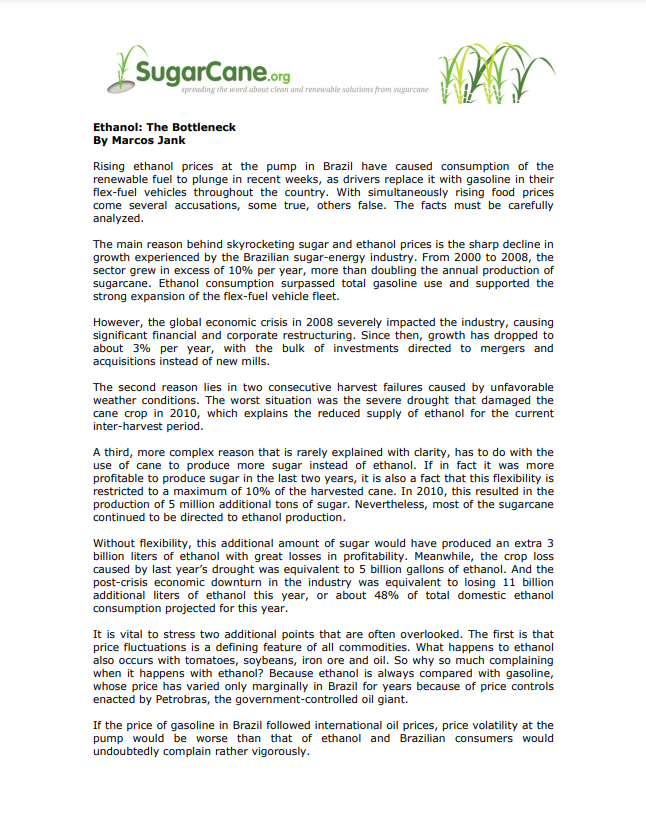
Ethanol: The Bottleneck
Rising ethanol prices at the pump in Brazil have caused consumption of the renewable fuel to plunge in recent weeks, as drivers replace it with gasoline in their flex-fuel vehicles throughout the country. With simultaneously rising food prices come several accusations, some true, others false. The facts must be carefully analyzed.
